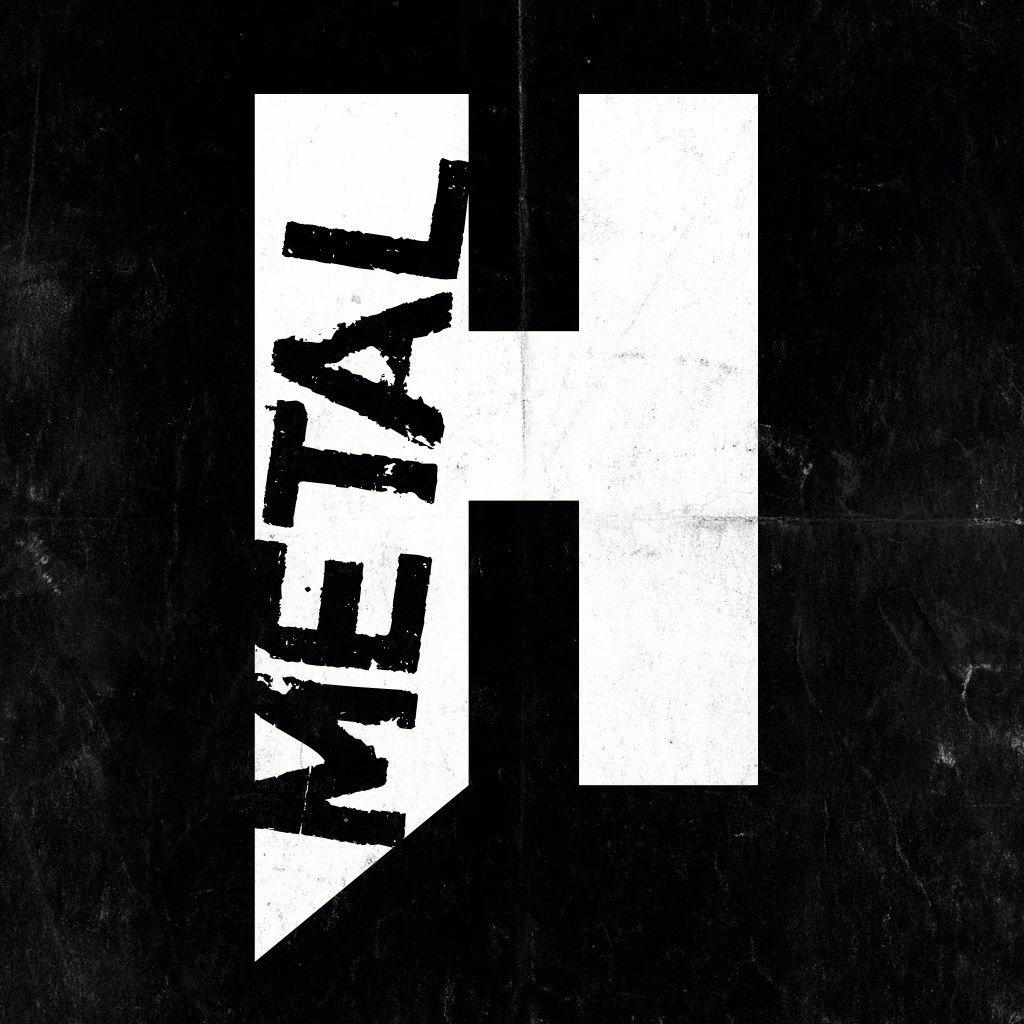The Top 20 best albums of 1995
From the birth of Deftones and Rammstein to White Zombie’s final farewell, these are the best metal albums of 1995
Select the newsletters you’d like to receive. Then, add your email to sign up.
You are now subscribed
Your newsletter sign-up was successful
Want to add more newsletters?

Every Friday
Louder
Louder’s weekly newsletter is jam-packed with the team’s personal highlights from the last seven days, including features, breaking news, reviews and tons of juicy exclusives from the world of alternative music.

Every Friday
Classic Rock
The Classic Rock newsletter is an essential read for the discerning rock fan. Every week we bring you the news, reviews and the very best features and interviews from our extensive archive. Written by rock fans for rock fans.

Every Friday
Metal Hammer
For the last four decades Metal Hammer has been the world’s greatest metal magazine. Created by metalheads for metalheads, ‘Hammer takes you behind the scenes, closer to the action, and nearer to the bands that you love the most.

Every Friday
Prog
The Prog newsletter brings you the very best of Prog Magazine and our website, every Friday. We'll deliver you the very latest news from the Prog universe, informative features and archive material from Prog’s impressive vault.
Kyuss - ...And The Circus Leaves Town
The swansong from desert rock chiefs Kyuss, ...And The Circus Leaves Town moved away from the cosmic epics of 1994's Welcome To Sky Valley to instead offer a more straight-ahead vision for what the band could achieve. In many ways, this album was the bridge that took Josh Homme from Kyuss to Queens Of The Stone Age, echoes of Circus popping up in his later work, particularly the mosquito whine of guitars in One Inch Man.
Though percussive powerhouse Brant Bjork had departed Kyuss in '93, the band found a more than worthy replacement in Alfredo Hernández, their new sticksman strutting his stuff on opening track Hurricane. Though not as expansive (nor critically/commercially successful) as its predecessor, the musicianship of Kyuss remains paramount on ...Circus, the band still sounding a cut above just about every other band in the world of stoner rock even almost 30 years later.
Life Of Agony - Ugly
Helmed by streetwise hardcore kid Mina Caputo, Life Of Agony channelled their inner pain on their second album, and there was a lot of it. Dark, grungy melodies swirled around angsty lyrics about a person desperate to find their own path without giving into conformity. This downbeat, outsider alt-metal would become the New York quartet’s hallmark.
Meshuggah - Destroy Erase Improve
Years ahead of its time and still proving a fertile hunting ground for countless bands to borrow and rip off ideas from, Destroy Erase Improve saw Mehsuggah take the ideas explored on the previous year’s None EP and engineer a futuristic, innovative metallic form that changed metal forever. Mindbogglingly brilliant.
Monster Magnet - Dopes To Infinity
It was 1995. Grunge was wearing woefully thin and nu metal was lurking just around the corner. Someone needed to blast a hole through this wall of mumbling self-pity and sexless whining, preferably using a giant raygun full of drugs, nudity and mind-bending space rock anthems. So, who you gonna call? Acid-spiked riffs and Dave Wyndorf’s mind-melting worldview combined on MM’s nuclear-powered trip through the cosmos. Trans-dimensional stoner metal.
Opeth – Orchid
Opeth’s first album may be their most primitive, but Orchid was a remarkable debut from a band that were doing things differently from every one of their supposed peers, as if it was the most natural thing in the world to play music with this much charm and depth.
On the sweeping grandeur of Under The Weeping Moon, Forest Of October and The Twilight Is My Robe, the genesis of an all-time great metal band can be clearly heard, as youthful muscles are flexed and recently birthed ideas are given a tentative first outing. They would make grander and more sophisticated album, but all the promise of the future was already in place.
Sign up below to get the latest from Metal Hammer, plus exclusive special offers, direct to your inbox!
Paradise Lost - Draconian Times
Draconian Times was Paradise Lost’s own Black album: a slab of majestic contemporary metal that met the mainstream on its own terms. Here, the band streamlined their sound without losing their identity, just as Metallica had done half a decade earlier.
Enchantment and The Last Time stripped away the murk to reveal a sparkling melodic heart, Elusive Care gave full flight to the old school goth leanings that had always been lurking in the shadows, while Once Solemn veered towards punk territory in its rampant forward motion. For a moment, it looked like Draconian Times was going to elevate Paradise Lost in metal’s superstar bracket. Ultimately it didn’t, but more than two decades on it remains one of the great albums of the 1990s.
Primus - Tales From The Punchbowl
Arguably the last of Primus’ significant commercial hits, Tales From The Punchbowl has the most well-rounded and vivid production of any of the band’s albums. It also has Wynona’s Big Brown Beaver, a song designed to have men of all ages tittering hysterically, and one that also encapsulates Primus’ sound: weird, catchy, mischievous and ever so slightly demented.
Hits aside, Tales has some of the band’s best songs, ranging from the monstrous splurge of Professor Nutbutter’s House Of Treats through to the nightmare of Over The Electric Grapevine. Strange tales indeed.
Rammstein – Herzeleid
It seemed crazy at the time. Rammstein were a band from Germany – from the former East Germany, no less – who were arrogant/stupid enough to think they could make a career out of singing songs in German. Were they taking the piss? Apparently not.
Debut album Herzeleid brought Rammstein into this horrible world and gave us Du riechst so gut and Wollt ihr das Bett in Flammen sehen?. And while it lacks the variety and sheer firepower of later efforts, it cemented their titanic Neue Deutsche Härte racket and proved that, despite all opposition, keyboards are cool.
White Zombie - Astro-Creep: 2000
Rob Zombie’s crazed B-movie vision came to stadium-sized fruition on his band’s final album. A helluva of a way to bow out. An album that was heavier on the industrial influences than their previous work, it was at the same time catchier and more instantaneous than they had ever been.
But the most startling thing was just how good, how crisp, shiny and enormous White Zombie now sounded – like experiencing them in Technicolor for the first time. The credit for that goes to Pantera producer Terry Date in a major way, who employed the same tactics as he did on their Vulgar Display Of Power album to make the band pop and crack in all the right places.
The Wildhearts - P.H.U.Q.
The Wildhearts initially planned to produce a double-album for their second release, shifting away from the punk-flecked rock'n'roll of their debut to more grandiose, directly metallic fare. Alas, the band's label EastWest were having none of it and the songs were split, some siphoned into the fanclub release Fishing For Luckies while P.H.U.Q. took the rest.
Kicking off with the galumphing I Wanna Go Where The People Go, P.H.U.Q. caught The Wildhearts at their most anthemic, massive tunes like V-Day, Just In Lust and Nita Nitro similarly bristling with radio potential. Elsewhere, the likes of Woah Shit, You Got Through and Caprice showed the band's capability for all-out thrash, the former going off like a cannonball while Caprice sounds like the riff that Metallica lost going from The Black Album to Load. Peaking at no. 6 in the UK music charts, P.H.U.Q. was a tantalising hint for the mainstream success The Wildhearts deserved but never achieved.
- 1
- 2
Current page: The Top 20 best albums of 1995 #11 - 20
Prev Page The 20 best albums of 1995 - #1 - 10Founded in 1983, Metal Hammer is the global home of all things heavy. We have breaking news, exclusive interviews with the biggest bands and names in metal, rock, hardcore, grunge and beyond, expert reviews of the lastest releases and unrivalled insider access to metal's most exciting new scenes and movements. No matter what you're into – be it heavy metal, punk, hardcore, grunge, alternative, goth, industrial, djent or the stuff so bizarre it defies classification – you'll find it all here, backed by the best writers in our game.

